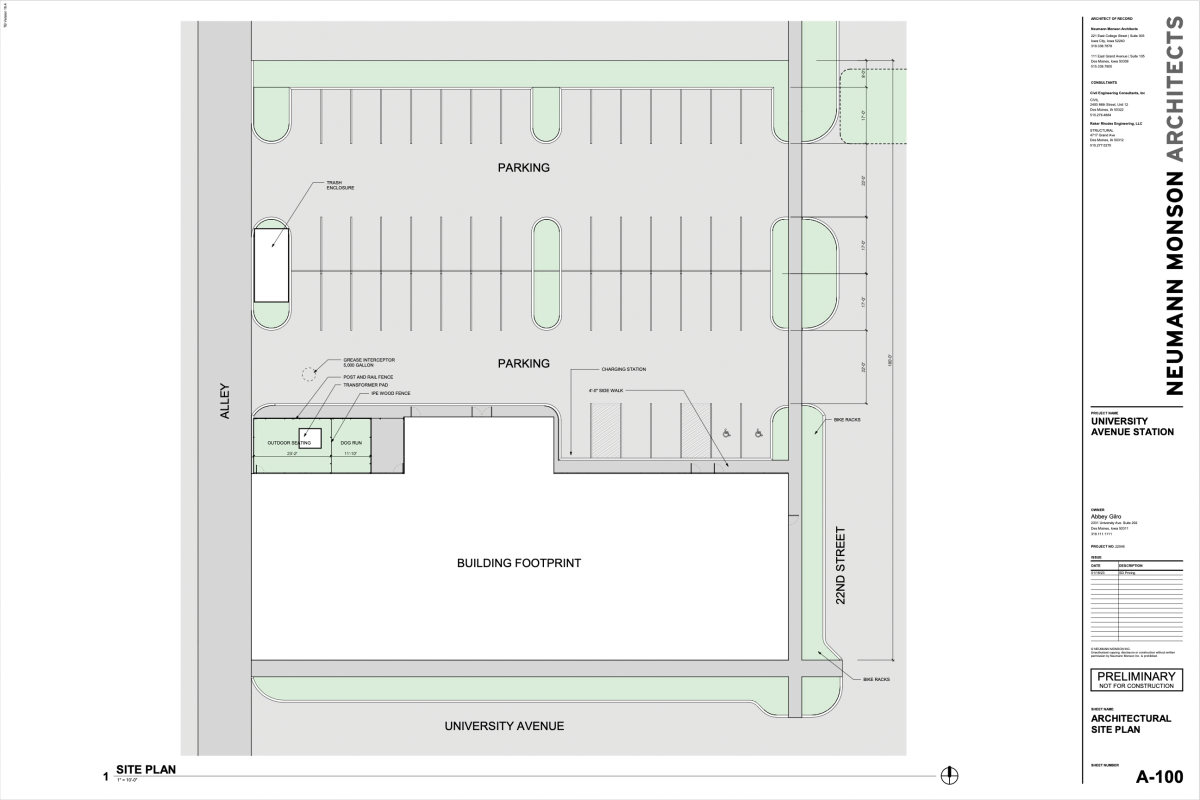A grocery store, restaurant and apartments will be built at University Avenue and 22nd Street. The three-story development will include both a locally owned grocery store and restaurant on the ground floor, with 24 apartment units above.
The lot was previously occupied by a Kum & Go gas station that closed following the redevelopment of the company’s University Avenue and 31st Street location.
When considering uses for the site, Kum & Go – which operates over 400 locations across 13 states – reached out to community leaders to determine the best use for the site.
“The CEO of Kum & Go engaged directly with neighborhood association leadership, asking them, ‘What do you think would be the best use for this property?’” said Ryan Arnold, Drake University’s director of community engagement.
Kum & Go decided to sell the lot to Neighborhood Development Corporation, a Des Moines nonprofit that focuses on neighborhood revitalization and sustainable development.
Prior to the sale, Drake University had been in contact with a small grocery store in the area about finding a larger building. Excluding the store’s current location, Arnold believes the Drake neighborhood can be considered a food desert because the nearest grocery store is a Hy-Vee 1.5 miles away.
“I’ve been in the neighborhood for 10 years, and for all that time and preceding that time, the desire for enhanced grocery service in the neighborhood around our town has always been a high priority,” Arnold said.
Arnold connected the grocer with NDC, which began to develop the 22nd Street lot around the grocery store. NDC decided a dense mixed-use development would best optimize the lot and help reduce rent costs for the commercial tenants.
“It actually is more expensive, really on a per square foot basis when you do just a single-story commercial building because what you’re doing is relying on that tenant or that operator to cover the debt,” NDC Executive Director Abbey Gilroy said. “So what we try to do is spread those costs out over multiple floors and then also add revenue-generating aspects to the building like the apartments.”
The development is estimated to cost $7 million. It is funded partially through Grayfield tax credits from the state of Iowa, which are used to redevelop underutilized sites, and workforce housing tax credits.
NDC is also exploring grants from some of its community partners. The rest of the money will come from NDC, which is funded by the City of Des Moines and Polk County.
Gilroy said she is excited to see the project benefit two local businesses while providing the community with expanded food options within walking distance. While the apartments will help with the increasing demand for housing in Des Moines.
“We’re really just trying to provide a small-scale housing option for the neighborhood on an underutilized site,” Gilroy said.







